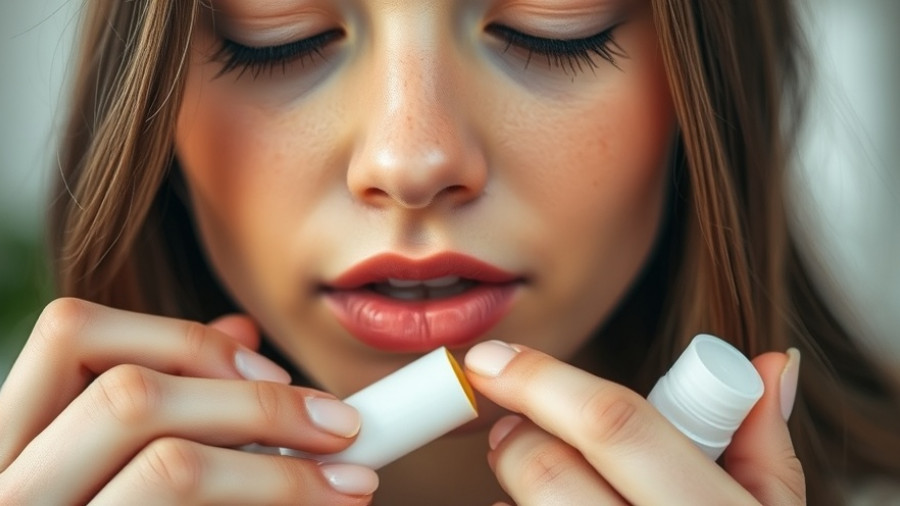
Understanding Lip Balm Dependency: Fact or Fiction?
As the chilly winds of winter approach, many of us find ourselves reaching for that familiar tube of lip balm. But have you ever wondered if your chapped lips can truly become 'addicted' to this soothing salve? Although the notion seems plausible, board-certified dermatologist Dr. Susan Massick dispels the myth of chemical dependency, stating that lip balm usage doesn't equate to addiction in the conventional sense. While it may feel like a habit, it’s essential to understand the underlying reasons for frequent application.
Why Your Lips Crave Constant Moisture
For many, reapplying lip balm becomes a ritual, especially during colder months when dryness intensifies. According to Dr. Massick, if you find yourself slathering on your favorite balm hourly, it’s likely not a dependency but rather irritation stemming from the product itself. Ingredients such as menthol, camphor, and certain artificial fragrances can aggravate the skin, pushing you into a loop of reapplication to find relief. Moreover, licking your lips after application, often induced by flavored balms, can exacerbate dryness due to the evaporation of saliva.
The Ingredients Matter: What to Avoid
As you venture into the world of lip care, understanding what goes into your favorite products is crucial. Dermatologists suggest avoiding balms that list irritating agents like phenol and salicylic acid in their ingredients. These substances can dry out your lips over time, prompting an endless cycle of use. Instead, look for comforting ingredients like petrolatum or dimethicone, which effectively lock in moisture and provide a protective barrier against the elements.
Breaking the Wetting-Drying Cycle
For those who find themselves constantly battling chapped lips, breaking the habit of frequent balm application is vital. Start by being mindful of the triggers that lead you to reach for lip balm so often. Are you applying it out of necessity, or has it become a comforting habit? You might also consider implementing a few effective strategies:
- Stay Hydrated: Ensure you're drinking enough water throughout the day, which significantly contributes to hydrated skin.
- Use a Humidifier: Adding moisture to the air at home can prevent your lips from becoming dry and cracked.
- Avoid Licking: The practice of wetting lips with saliva can prove detrimental, as evaporation leads to further dryness.
Healthier Alternatives to Lip Balm
While lip balm certainly has its place, consider trying alternatives to keep your lips looking and feeling their best. Natural remedies such as castor oil or shea butter can hydrate effectively without the risk of causing irritation. If you like a bit of flavor, look for balms with natural ingredients free of artificial additives, and apply a minimal layer to avoid overuse.
Recognizing the Signs of Lip Balm Overuse
Are you using lip balm more frequently than you'd like? It might be time to assess whether your relationship with this product is affecting your daily life. Ask yourself:
- Do you feel anxious when you’re without lip balm?
- Do you experience difficulty managing dry lips, regardless of how much balm you use?
Final Thoughts: Embrace Healthy Lip Care Practices
As we approach the winter season, prioritize your lip care with a mindful approach. Select balms wisely, stay hydrated, and explore healthier alternatives to balm over-dependency. With the right habits, you can maintain smooth, healthy lips throughout the season.
Wondering how to enhance your overall wellness routine? Explore natural health tips and holistic practices that can promote your mind and body health, integrating wellness into every aspect of your life.
 Add Element
Add Element  Add Row
Add Row 



Write A Comment